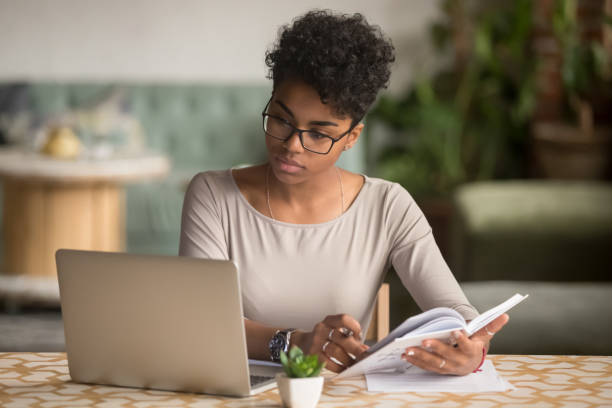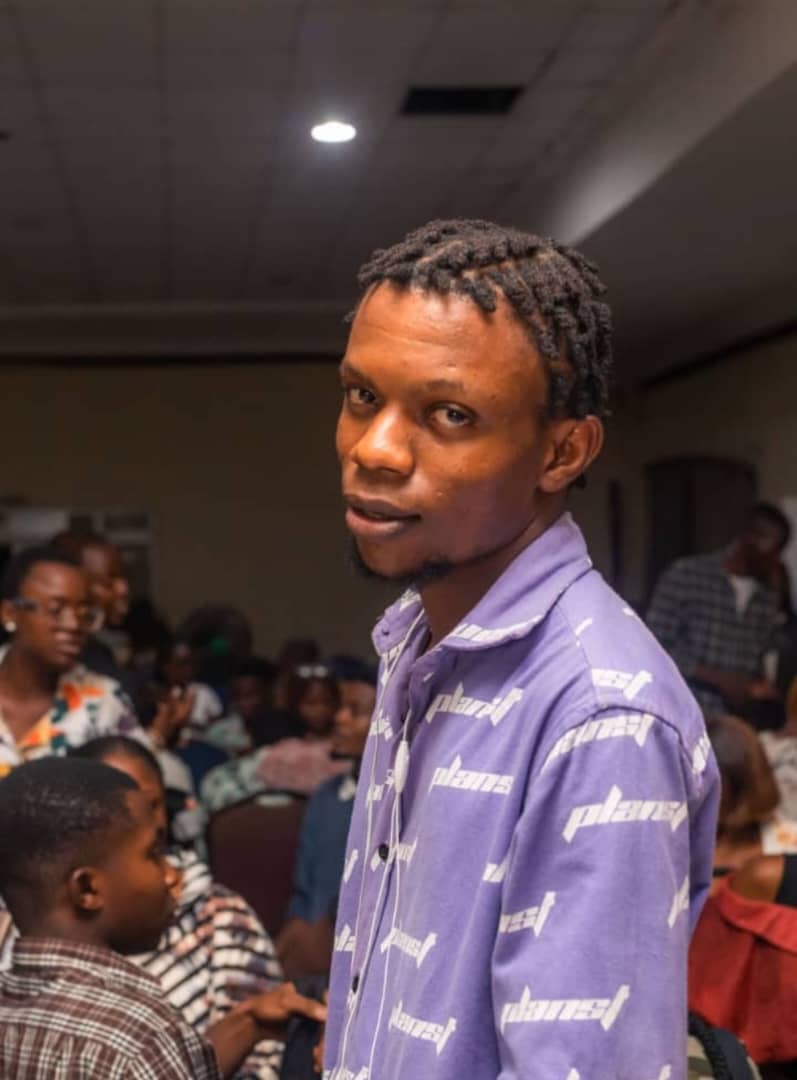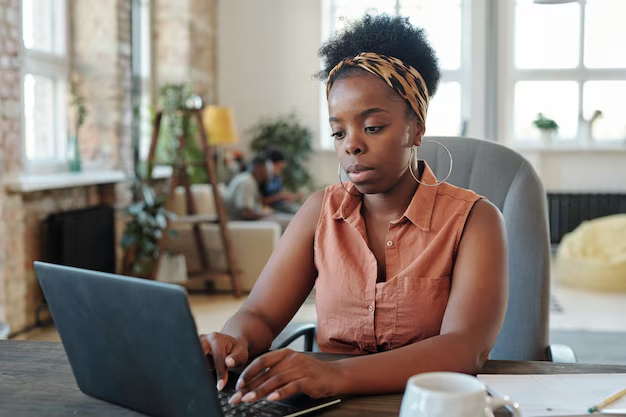For freelancers across Africa, how to earn your first $100 as an African freelancer is more than just a question of money. It’s a milestone. That first payment carries more weight than the amount itself. It is validation that your skills matter beyond borders, that someone, somewhere, values your craft enough to pay for it.
Seven freelancers from across the continent shared their stories of how they landed their first paying gigs, how the money came in, and what it meant to them. Their journeys also reveal how to earn your first $100 as an African freelancer, step by step, no matter where you’re starting from.
1. Chioma — Nigeria, Writer
I had been hearing people say, “There’s money on Upwork.” So I created a profile, uploaded my samples, and started applying for jobs. Every night after class, I’d sit at my small desk with my laptop, sending out proposals like prayers. Nothing came back. Months later, and many connects gone was met with silence.
Then one evening, I saw a posting: someone needed a 2,000-word blog post on personal finance. I applied with my usual pitch and forgot about it. To my surprise, the client replied within an hour. He asked for an outline. My heart raced. I worked on it all night, terrified that he would reject me.
He didn’t. He approved it, and two days later, the full draft was done. When I saw $100 sitting in Upwork escrow, I screamed, and after Upwork fees and Payoneer’s waiting period, it finally hit my account.
When I changed to Naira, it was almost N200,000. I splurged on myself and saved the rest. That $100 was the beginning, but it was proof that my words could pay bills.
2. Brian — Kenya, Graphic Designer
I never planned to freelance. I was just posting my design experiments on Instagram. Random posters, flyers, and logos I made while learning Photoshop. Most of the time, I barely got likes, But one day, a Nairobi restaurant owner DM’d me: “Can you do branding for us?”
I froze. I didn’t even know what branding involved in a professional sense. But I told him yes, and when he asked my rate, I just blurted out, “$100.” I thought he would laugh. Instead, he agreed.
We met up at the restaurant. He sent me the money via M-Pesa before I even started. That trust humbled me. I worked on the designs day and night, terrified of messing up.
When I finally handed everything over (the logo, menu, and social banners) and I realized something: my hobby was valuable. That first $100 made me take myself seriously
3. Ama — Ghana, Virtual Assistant
I stumbled into freelancing by accident. I was in a Facebook group where entrepreneurs shared advice, and one Canadian founder posted: “Looking for someone to help with email and scheduling.”

I almost scrolled past, but something pushed me to comment. We got talking, and he gave me a two-week trial. It was simple work. Checking emails, and booking meetings, but I treated it like gold.
At the end, he sent me $100 through PayPal. That’s when panic hit: PayPal doesn’t let you withdraw money in Ghana. For two days, I thought the money was stuck forever. Finally, a friend with a verified PayPal account helped me withdraw it. I exchanged it for cedis through a local exchanger, and just like that, I was holding my first freelance income in cash.
It wasn’t easy, but that $100 launched me into my freelancing career.
4. Sipho — South Africa, Video Editor
Editing was just a hobby. I used to edit my friends’ YouTube videos for fun. Cutting out awkward pauses, adding music, tweaking transitions. One day, I messaged a mid-sized YouTuber in the US and said, “Your content is good, but I can make it better.”
He gave me three videos to edit for $100. I worked nonstop, making sure every second flowed perfectly. When he sent the money through, I refreshed my Standard Bank app ten times just to be sure it was real.

Seeing dollars turned into rands in my own account changed my mindset. My video-editing career kicked off from there, and I have worked with many brands that I have lost count.
5. Clarisse — Cameroon, Translator
Being bilingual always felt normal to me. French and English were just part of life. But when I joined Fiverr, I realized people abroad would actually pay for translation.
At first, nothing happened. Weeks went by with zero orders. Then one night, a student from the UK messaged me in desperation: “Can you translate this essay overnight?” I said yes and quoted $100. He agreed immediately.
I stayed up until 4 a.m. working on it, terrified of making mistakes. I delivered before the deadline, and the client gave me five stars. Fiverr released the payment after a waiting period, and I withdraw it. At a microfinance bank in Douala, I finally held that money in my hands, and almost shed a tear.
6. Dayo — Nigeria, Web Developer
My cousin connected me to a fashion brand that needed a landing page. I quoted $100. They paid straight into my bank account, and I got to work. I remember feeling nervous because it wasn’t through any platform, just banking on trust. When I finished and they were happy with the site, I realized this was possible.
The payment gave me the confidence to pitch my skills to more foreign clients. I have earned 1000x of that, but it opened the doors for what’s possible.
7. Esther — Kenya, Social Media Manager
I was active in a crypto Twitter community, posting memes and managing small accounts for fun. One day, a startup founder DM’d me: “Can you handle our socials for two weeks? We’ll pay $100 in USDT.”

At first, I thought USDT was a typo. Then I learned it was a stablecoin, like digital dollars. I downloaded a crypto wallet, got paid, and within minutes, the money was there. I converted it to Kenyan shillings on Binance P2P, faster than any bank transfer I’d ever seen.
That was my first taste of borderless money. No banks, no middlemen, just me and my laptop. That $100 made me believe the internet could truly change my life.
RECOMMENDED READING: From Freelancer to Founder: Uchechi Ihuomah’s Playbook for Creative Success
How To Earn Your First $100 as an African Freelancer
Here’s a simple five-step roadmap to help you land your first $100 as a freelancer. Each step brings you closer to proof that your skills can truly pay.
1. Pick Your Skill and Polish It
Every freelancer’s journey starts with a skill. Chioma wrote, Sipho edited videos, Clarisse translated, and Brian designed logos. The key is to choose something you’re good at or willing to practice until you get good. It can be writing, design, social media management, or translation, polish your craft and create samples to showcase your work.
2. Find Your First Opportunity
Opportunities rarely come knocking. You have to search for them. Platforms like Upwork, Fiverr, and LinkedIn are good places to pitch. Communities like Twitter, Facebook groups, or Instagram can land you unexpected clients, as Brian and Esther discovered. Even personal networks like family, friends, cousins can open doors. Apply consistently. The first gig may take time, but persistence pays.
3. Start Small, Deliver Big
Most first clients aren’t looking for perfection, but someone who is reliable. Ama treated simple email tasks like gold. Clarisse translated an essay overnight. When you get that first chance, overdeliver. Make it clear you’re serious, even if the job seems small. A strong first impression is worth more than the $100.
4. Agree on Payment Terms Upfront
One common challenge African freelancers face is how to get paid. Fees and delays cut into earnings. Crypto wallets worked for some, but not everyone understood how.
This is where Accrue comes in. Unlike other platforms, Accrue gives freelancers across Africa smooth international payments in their own name, and ensures your money arrives quickly, without waiting weeks or losing a big chunk to fees.
5. Build Confidence and Scale Up
That first $100 is more than money. It’s proof of concept. Once you’ve been paid once, you’ll know it’s possible. From there, you can raise your rates, pitch more boldly, and grow your freelance career.

And when the payments start rolling in, you’ll want a trusted partner. With Accrue, you won’t have to worry about where your money goes. You can focus squarely on your craft and career growth. Your first $100 validates your skill. The next $1,000, $10,000, or more depends on how you scale. Whether you’re in Lagos, Nairobi, Accra, or Johannesburg, Accrue ensures you get paid smoothly, securely, and in your own name.

I’ve lived many lives, but one lesson ties them all together: money is only as powerful as its utility. Through my work, I share stories about money and create guides for Africans who want to get the best out of theirs.
